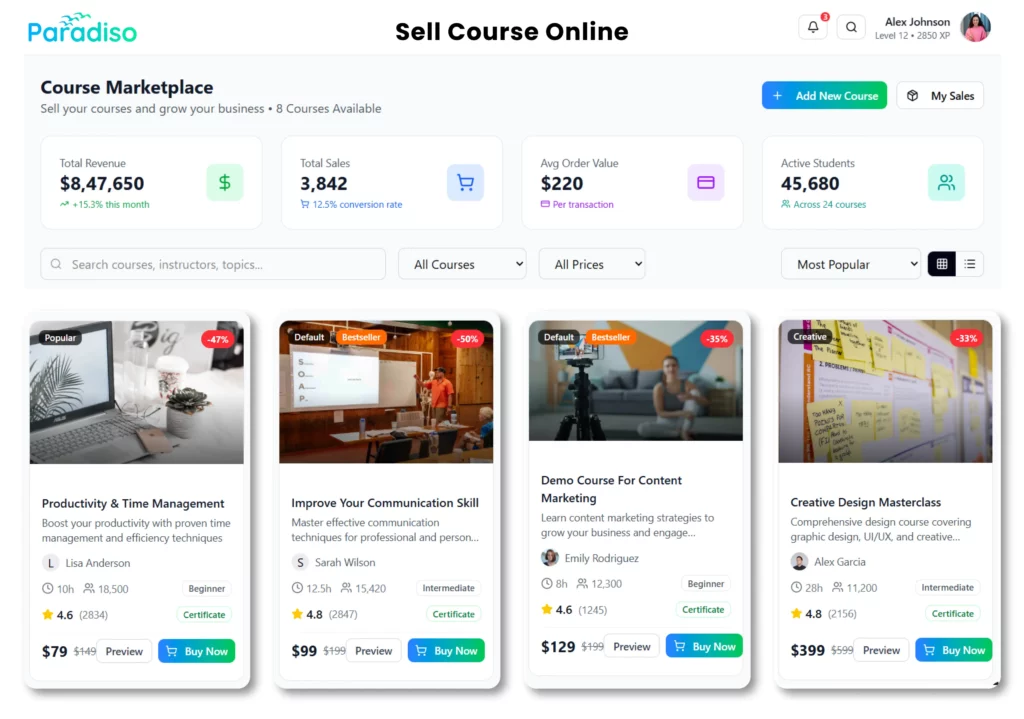Introduction
In today’s fast-evolving business landscape, learning and development (L&D) initiatives are crucial for companies aiming to maintain a competitive edge. With the rapid advancement of technology, remote work, and AI-driven solutions, organizations must continuously upskill their workforce to meet industry demands. This is where a Learning Management System (LMS) becomes indispensable.
The importance of an LMS has only grown in 2025, offering companies a centralized platform to deliver, track, and optimize training programs. But why do companies need an LMS in 2025? This blog explores the key reasons businesses should adopt an LMS, along with FAQs and actionable insights.
What is an LMS, and Why is It Important?
A Learning Management System (LMS) is a software platform that helps businesses manage, automate, and deliver training programs. It allows companies to train employees, onboard new hires, enhance compliance training, and foster continuous learning. In 2025, companies need an LMS more than ever due to:
- The rise of remote and hybrid work environments
- The increasing need for personalized learning experiences
- The demand for AI-powered training and automation
Why Do Companies Need an LMS in 2025?
1. How Does an LMS Improve Employee Training and Development?
An LMS provides a structured and scalable training framework that enhances employee skills, engagement, and retention. With AI-driven analytics, companies can track progress, identify skill gaps, and optimize training programs for better results.
2. Can an LMS Help with Compliance and Regulatory Training?
Yes! Industries such as healthcare, finance, and manufacturing require strict compliance training. An LMS ensures that employees complete mandatory courses, stay updated on regulations, and pass assessments without manual tracking.
3. How Does an LMS Enhance Remote and Hybrid Work Training?
With the rise of remote work, an LMS enables organizations to provide consistent and accessible training to employees worldwide. Cloud-based LMS platforms allow for mobile learning, video-based modules, and interactive courses, ensuring employees can learn anytime, anywhere.
4. Does an LMS Boost Employee Engagement and Retention?
Studies show that companies investing in employee development see higher retention rates and job satisfaction. An LMS integrates gamification, AI-driven learning paths, and interactive content, making training more engaging and impactful.
5. How Does an LMS Reduce Training Costs?
Traditional training methods can be costly and time-consuming. An LMS eliminates the need for in-person sessions, printed materials, and manual tracking, leading to significant cost savings. Automated reporting and AI-driven insights also help optimize learning investments.
6. Can an LMS Integrate with Other Business Tools?
Yes! A modern LMS seamlessly integrates with HR software, CRM platforms, productivity tools, and AI-driven analytics, ensuring a smooth workflow across different departments.
7. Is AI and Automation Shaping LMS Trends in 2025?
Absolutely! AI-powered LMS platforms offer adaptive learning, predictive analytics, and personalized course recommendations. Automation streamlines content delivery, assessments, and certification management, enhancing efficiency.
FAQs
Industries like healthcare, finance, IT, manufacturing, and retail leverage LMS platforms for employee training, compliance, and skill development.
AI-driven LMS platforms analyze user behavior and learning preferences to offer customized training paths, ensuring better engagement and knowledge retention.
Key features include AI-driven analytics, mobile learning, gamification, compliance tracking, and seamless integrations with existing business tools.
Companies evaluate LMS performance using KPIs such as course completion rates, engagement levels, test scores, and ROI analysis.
Key Takeaways
- An LMS is essential for scalable, efficient, and AI-powered employee training in 2025.
- Companies benefit from cost savings, improved compliance, and enhanced engagement.
- AI, automation, and mobile learning are shaping the future of LMS platforms.
- Businesses must choose an LMS that integrates seamlessly with existing tools.
The Future of Learning with AI
As businesses continue to evolve, adopting a cutting-edge LMS is no longer an option—it’s a necessity. Whether for compliance training, upskilling, or employee engagement, an LMS ensures organizations stay ahead in 2025.
Ready to transform your workforce with a next-gen LMS? Contact Paradiso LMS today and explore how our AI-powered learning solutions can help your business thrive!















